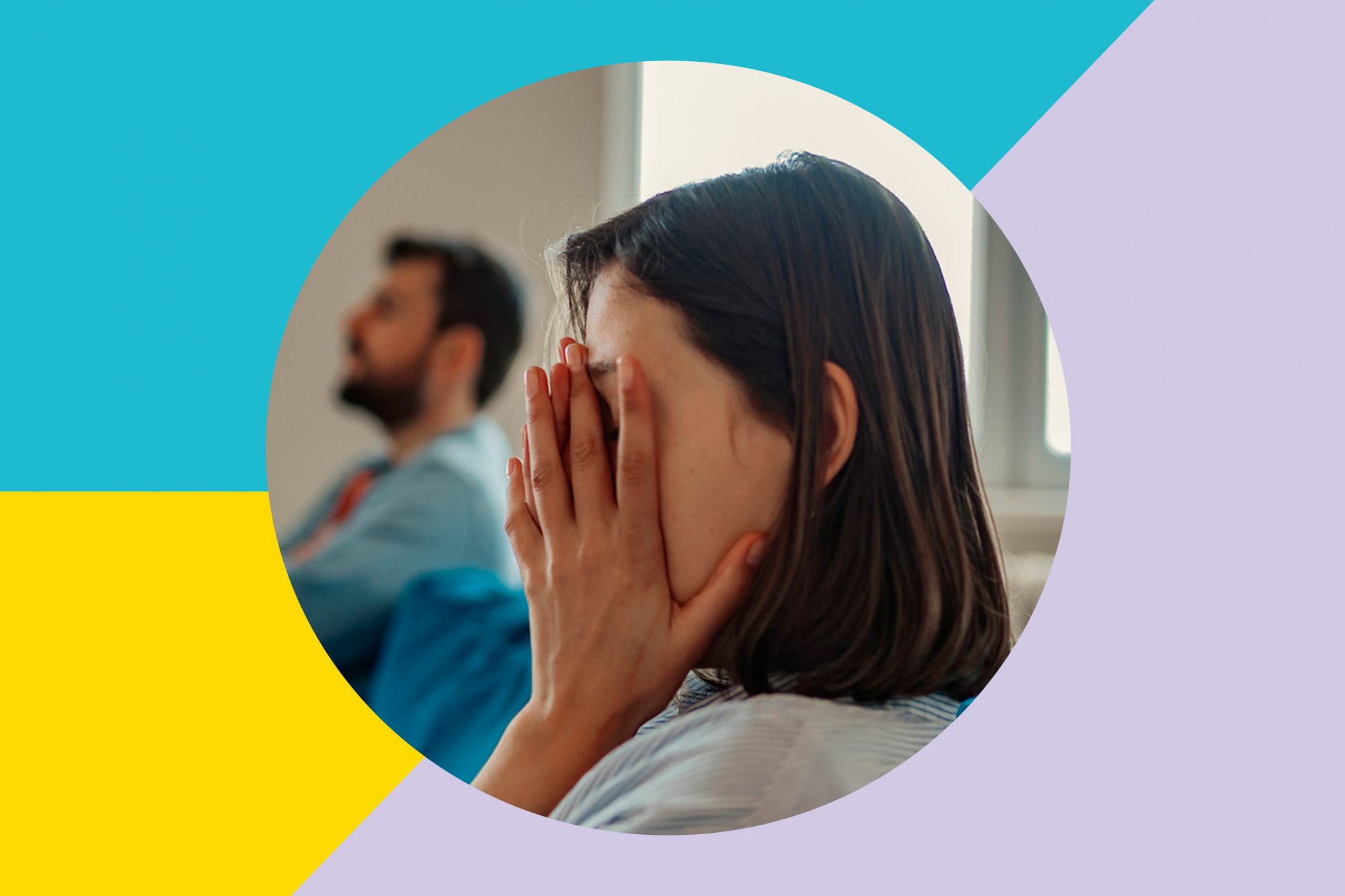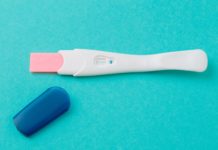After giving birth, your postpartum body will look and feel different than it did before you had kids. You just grew a human inside of you for 10 months, endured all that comes with labor and delivery, and then have to deal with the recovery aftermath—while also caring for a newborn. It's no joke. That's why it's so important to shift the postpartum conversation away from weight loss or "getting your pre-baby body back" (ahem, it didn't go anywhere!) and, instead, focus on all that your body accomplished and on healing—mentally, physically, and emotionally.
This dad on Reddit apparently didn't get the memo.

A 32-year-old mom of two took to Reddit's Am I the A**hole (AITA) subreddit to get some feedback on a situation that resulted in her kids in tears.
"I gave birth back in October," u/throwaway1368989 explained. "Since then, it's been extremely difficult for me to lose the baby weight… mainly due to my postpartum depression. I get next to no sleep attending to my children and most mornings, I can barely get out of bed, much less drive to the gym. It's been a dark few months for me. I've told these things to my partner 'Dave' (43 M) and though he said he understood, I don't think he really does. Though never explicitly stating it, he makes jokes and comments that imply I'm lazy and that he's no longer attracted to me."
Postpartum depression (PPD) effects 10 to 20 percent of new moms—but treatment is available to alleviate these feelings of sadness, hopelessness, and extreme fatigue. What doesn't help? Having a partner who doesn't really understand the seriousness of PPD or how to help. The postpartum period is difficult enough without a PPD diagnosis, so it's important to have a supportive partner. It's also important to give yourself some grace when it comes to dieting and weight loss, especially if focusing on these things is causing you more stress or unrest. And if this mom's doctor says she's at a healthy weight, there's no need to add additional stress about a number on a scale.
"Last week, I broke down to [Dave] about not being able to lose the weight, and he said that he would push me to do so because he loves me," the original poster (OP) continued. "Since then, he's taken a 'Biggest Loser' approach and started calling me 'Ms. Piggy' [sic] and has instructed all of my friends and family, even my kids, to do so. I hate this nickname, but he says it's supposed to motivate me to lose weight. I think he really believes it's going to help me, but I feel really undermined while parenting because this nickname."
In no world is this OK. Let's put aside the unrealistic expectations and pressure put on new moms to look, feel, and act a certain way for a moment to point out that your home—and your partner—should be a safe space. You shouldn't be body-shamed or be made to feel worse by someone you love—period.
"The other night, my family was eating and my children started oinking at me, and out of frustration, I started yelling at my husband," OP said. "We have a rule not to yell in front of the kids, but we're almost always in front of the kids during quarantine and I feel so dismissed. The kids started crying and Dave says I'm to blame. Reddit, AITA?"
As many Redditors quickly pointed out to this suffering mom: The only pig in this story is Dave.
"This is abuse, full stop," one commenter posted. "And your children are learning it." To which another Redditor replied: "This is absolutely the only comment that you need to read, OP. And that abuse includes those comments about your attractiveness. You made a human, which not all of us can do. That's beautiful and so are you."
Let's say it one more time for those in the back: Weight-shaming, body-shaming, and bullying—online, from strangers, and especially from friends or family—have got to stop. It's time we put more of an emphasis on the mental health and well-being of new moms and move away from unrealistic and unhealthy expectations of what our bodies should or shouldn't look like.
Help is available if you're dealing with postpartum depression or another perinatal mood and anxiety disorder (PMAD). Organizations such as Postpartum Support International (800-944-4773) can connect you to trained mental health professionals and support groups. If you or someone you know is considering suicide, contact the National Suicide Prevention Lifeline at 800-273-8255.





